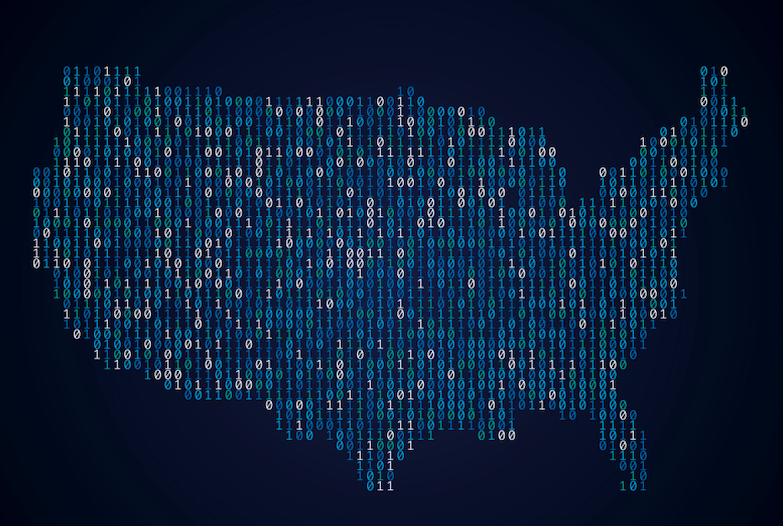Technology has revolutionized the way many industries conduct their business. This includes market research. From the early boom of Big Data to the emergence of Artificial Intelligence, several technologies are helping streamline the process of market research. As technology continues to advance and consumer behavior evolves, it is important for market researchers to stay up to date on the latest trends and emerging technologies. Below are the top five trends to pay attention to:
1. Artificial Intelligence (AI)
Artificial Intelligence (AI) is a computer operated intelligence system that collects, and synthesizes information. The use of AI is becoming more and more popular in many major industries, with market research not being an exception. The use of AI in marketing research can be useful in automating time-consuming tasks such as data cleaning and basic data analysis. Incorporating AI tools can help save research time on these tasks, allowing researchers to spend more time focusing on big picture tasks such as storytelling, and making marketing recommendations. However, some researchers are concerned about the use of AI in market research, feeling that the technology might take away from their current jobs and negatively affect their career.
2. Big Data
Big Data has become hugely successful since its boom in the early 2010s. Accessing critical data from many participants is now more accessible than ever, which market researchers are using to their advantage. The use of big data analytics tools has enabled researchers to analyze vast amounts of data more quickly and efficiently than ever before. This helps researchers to identify patterns and insights that may not have been apparent before when this amount of data was not accessible.
However, market researchers should be somewhat weary of big data, since it doesn’t always mean that the information is 100% reliable. Collecting a larger amount of data could mean that there is a larger chance that there could be inaccuracies, errors, and bad responses. These errors could lead to researchers unknowingly coming to misdirected conclusions. Market researchers should use their expertise and skills in analyzing big data to ensure they are getting the most out of their data.
3. Social Listening technology
Social media monitoring is a wealth of information about consumer opinions and behavior that breaks down the “why” behind consumer behaviors. Researchers can use software that helps monitor social media and analyze multiple conversations from a variety of social media platforms to gain important insights. These insights can include, tracking brand sentiments, identifying trends, monitoring competitor activities, and targeting specific audiences. These attributes overlap with some of the objectives that are typically the goal of market research, more specifically qualitative initiatives. Social listening is an effective technology that market researchers should consider to garner a “raw” look at consumer opinions than what a survey might bring in.
4. Blockchain
Blockchain technology allows for a secure and transparent way to store and share data. The tech has the potential to significantly improve the market research industry by also improving data privacy and security and helping facilitate faster and more efficient payments to participants. Blockchains can also be beneficial to market research since it allows market researchers to be transparent about how they use and store respondent information. Blockchains are useful because it keeps Personal Identifiable Information (PII) in order, making the respondents feel more secure. Although experts predict that blockchains will become a more innovative feature in market research, they still have a long way to go. Blockchains are still not a commonplace staple in market research due to their newness. Market researchers and consumers alike want to see it put into action in other industries before engaging in it themselves.
5. Virtual Reality (VR)
Virtual reality (VR) has become an increasingly buzzworthy technology that is gaining interest in the marketing world. VR can be used to simulate real-world environments and help invoke strong emotional reactions and thoughts from the person experiencing them. Market researchers are interested in incorporating VR into their designs and strategies. This is because VR gives market research an edge in getting up close and personal with the consumers, something other market research methods lack. Some of the ways that VR can be used in market research include product testing, consumer behavior testing, usability testing, and focus groups. For example, if a supermarket is testing out a new store layout then consumers can use VR to virtually walk through the store and have their natural reactions observed. This could be more poignant than if the consumers were shown pictures or just asked about their attitudes on store layout changes.
The Future of Technology & Market Research
While some people are hesitant about using this new technology, these five advancements indicate that it is a positive change for the industry rather than a negative one. Some researchers are hesitant to incorporate newer technologies such as AI and VR, fearing that they will take over the field and render actual people conducting market research obsolete. However, if we use examples of now commonplace technologies in the industry, such as social listening or the use of Big Data, we can see that this new technology will only enhance our marketing research capabilities by laying a solid foundation to build upon instead of taking away.









